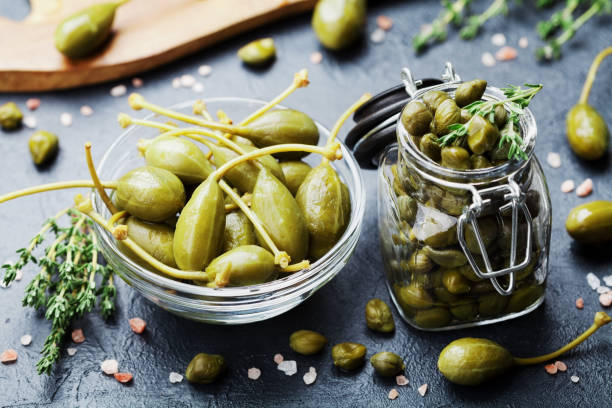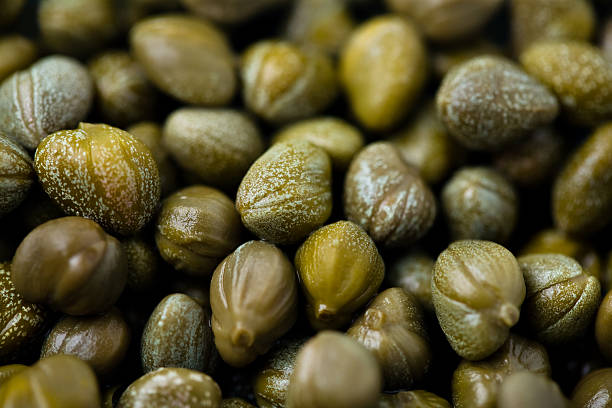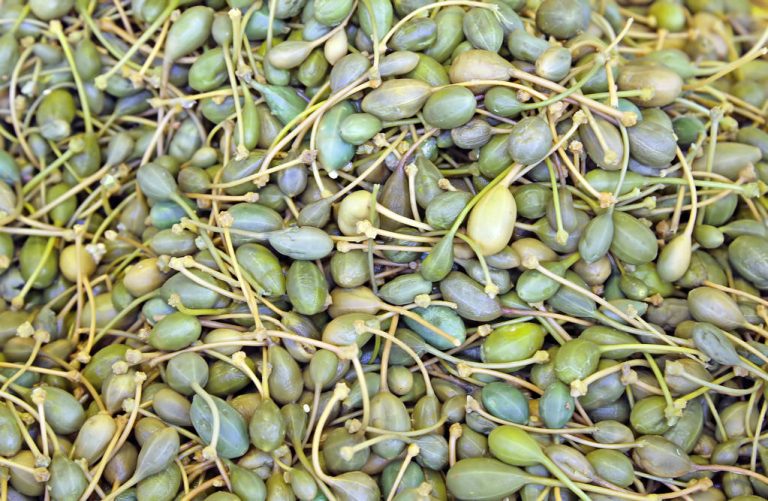Anyone who likes capers appreciates their piquant taste, which is created by fermentation. In addition, they are considered healthy – as long as no germs spread…

What exactly are capers and caper apples?
Most people only know capers pickled in salt or brine in a jar. If you pass one of the thorny caper bushes on a journey through the Mediterranean region, you may not recognize the capers: They are the closed flower buds of the “true caper bush”. Its flowers are white-violet and smell like capers as we know them. Capers, on the other hand, are the fruit that develops when the buds are not harvested.
The raw buds are comparable to freshly picked olives: they are bitter and inedible. Only when the capers ferment in brine or vinegar are the bitter substances broken down by microorganisms. The capers are then pickled or salted in vinegar or oil.
Enterococci in capers: helpers with hooks
Mustard oils are responsible for the savory taste of capers – capers and cabbage are closely related. Capers also contain other secondary plant substances: They are among the foods that are particularly rich in quercetin, as are apples and onions.
According to current knowledge, the secondary plant substances have a health-promoting effect on human metabolic processes: According to the German Society for Nutrition, studies suggest that they can protect against cancer and cardiovascular diseases.
However, capers are only healthy if no germs such as enterococci end up on the plate with them. The none can get into the glasses due to lack of hygiene.
The lactic acid bacteria enterococci have a fundamentally important function in fermentation and maturation processes: They not only give foods such as capers, cheese or raw sausages their desired taste, but are also important for a healthy intestinal flora. Fermentation is therefore a common way in many cultures to preserve food and – as has now been scientifically proven – to improve health. However, only as long as poor hygienic conditions do not lead to food being contaminated with undesirable strains of enterococci. These can cause infections in immunocompromised people.

Caper buds as a cooking ingredient
In southern Europe, caper apples are known as tapas or as a side dish, in this country the caper buds are used as a spice with a fine acidity. The rule of thumb with them is: the smaller, the better, the more expensive. You can also find different sizes in grocery stores. The smallest are called “Nonpareilles” in French.
Well-known kitchen classics with capers are:
Meatballs
Vitello tonnato
Beef tartare
chicken fricassee
Spaghetti alla puttanesca
Tips for preparing capers:
To prepare: taste some capers to check their intensity. Vinegar and salt could spoil your dish. If the taste is too strong for you, you can wash the capers, squeeze them out lightly or cut them into small pieces. You should definitely soak salted capers first.
For hot dishes: Do not cook the capers, but add them at the end, otherwise the aroma will be lost.







